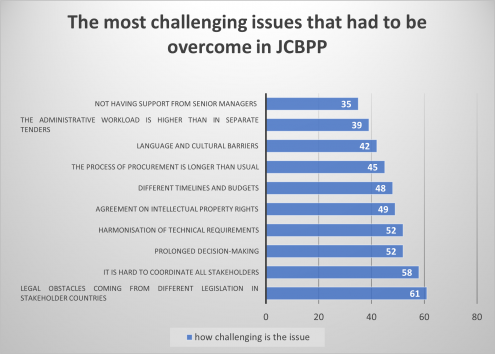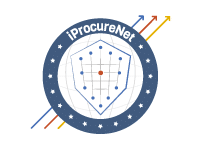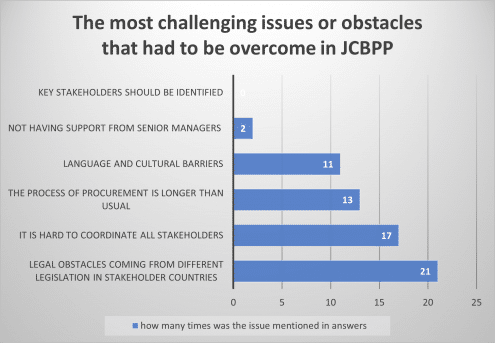Legal obstacles coming from different legislation in stakeholder countries
Different processes in procurement practices and different terminology
Different languages and cultures
Project team hasn’t planning sufficiently ahead and hasn’t involved top management
Ensure that final users and involved personnel are onboard and understand the importance of the project and how it will benefit them
When it comes to the PCP project, one should not forget to conduct a prior art analysis
Monitoring the proper execution of subsequent contracts, which occurs nationally
Lack of proper phase to promote the use of the Framework Agreement
Lack of support in disseminating the innovations selected in the Master Contract
In line with 1° and 2° surveys’ methodology, respondents of the 2023 survey were asked to share their insights and perceptions on what they see as the most challenging issues they had to overcome during a JCBPP.
Although the approach used in this survey differs from the one used in the 2° online survey, the ranking in both surveys is based on assessing which issues are perceived as more challenging, and this allows to maintain a level of continuity and comparability across the surveys.
 |
The most challenging issues that had to be overcome in JCBPP
Respondents were also asked an open-ended question about the mistakes that should be avoided when conducting JCBPP. Their responses were as follows:
- It’s crucial to carefully assess requirements, including all aspects related to delivery/service provision in the individual participating institutions.
- The legal preparation of the Tender needs to be extremely detailed and precise.
- Conducting a preliminary market consultation can help identify suitable suppliers.
The European procurement directives regulate only the awarding phase of public contracts, making it difficult to choose or combine different rules regarding the execution phase of the contract itself.
In some legal systems, the execution of public contracts is governed by public law.
In contrast, in others, it is governed by private law, and the associated dispute resolution systems vary widely.
All of this leads upstream to a certain reluctance to promote joint purchasing on a cross-border basis to stimulate the market effectively. Therefore, it is necessary to promote further harmonization efforts at the EU level, not only in the awarding phase but especially in the execution phase of JCBPPs.
Joint Cross-Border Public Procurement (JCBPP)
JCBPP and IP in the Security Sector
Joint Cross-Border Public Procurement (JCBPP)
Innovation Procurement (IP)
How to: Guide for JCBPP & IP
Ethics in procurement
























